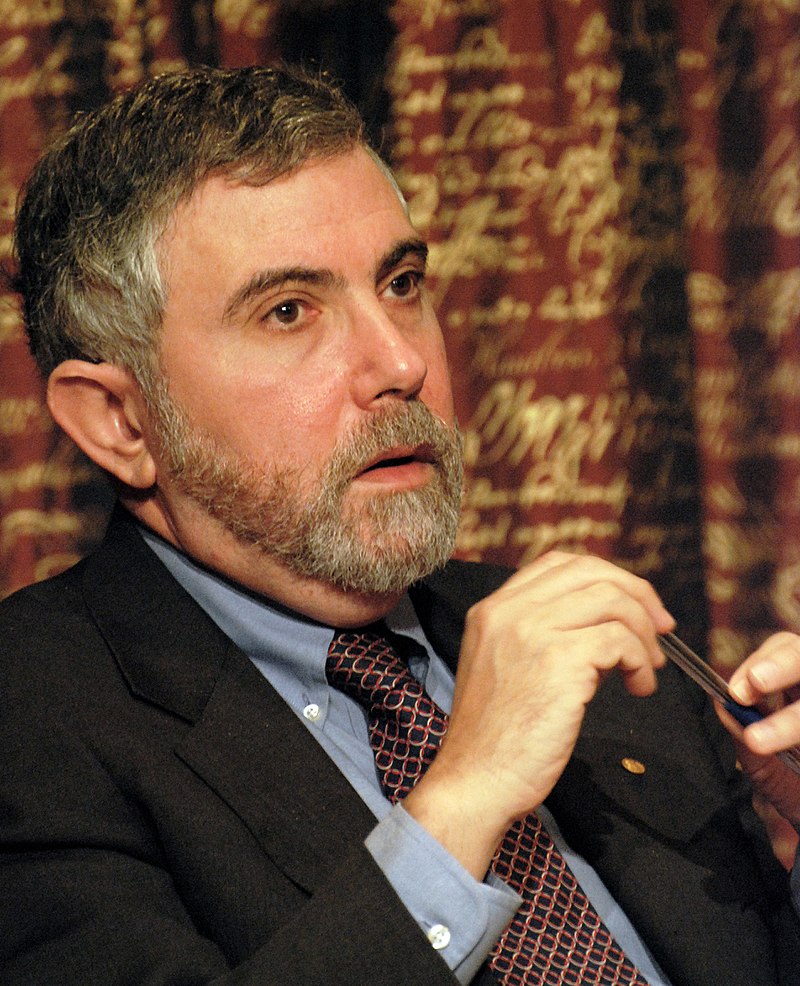June 24, 2022
By Stephen Gowans
“How did inflation get so high?” asks Paul Krugman, from the perch of his column in the New York Times.
“A large part of the story involves shocks like rising oil and food prices … that are outside the control of policymakers,” writes the Nobel prize-winning economist. “These nonpolicy shocks explain why inflation has soared almost everywhere — for example, British inflation just clocked in at 9.1 percent.”
But rising oil and food prices are not outside the control of policymakers.

Oil prices are rising largely because US, Canadian, and EU policymakers imposed an embargo on imports of Russian hydrocarbons.
And food prices likely wouldn’t be rising had the US and NATO negotiated a new security architecture in Europe when Moscow pleaded for one in December. The West summarily dismissed Moscow’s overtures, seeing greater advantage in letting Russia—which Washington views as a great power rival—weaken itself by stepping into the quagmire of a war in Ukraine. The war is disrupting Ukraine grain exports, putting upward pressure on food prices globally.
If energy and food inflation is beyond the control of Western policymakers, as Krugman alleges, how do we explain this: The Washington Post revealed that the Biden administration anticipated that its response to a Russian invasion of Ukraine would precipitate rising energy prices and a food crisis, but was prepared to “countenance” these outcomes, despite the widespread pain they would cause.
The Post says Biden believed the stakes of allowing Russia to swallow up Ukraine were greater than the harm of spiraling energy and food prices.
The newspaper, however, didn’t explain what the stakes are, in the administration’s view. A good guess is that they are seen as the possible failure of the longstanding project of the United States absorbing Ukraine—seen in Moscow as part of the Russian sphere of influence and vital to its prosperity—into a US-led anti-Russia alliance.
Is a US victory in the game of grab really worth the pain of a growing affordability crisis, to say nothing of a looming food crisis in Africa and the Middle East?
Monetary authorities are now jacking up interest rates to extirpate underlying inflationary pressures, running the risk of precipitating a global recession. But Fed chair Jerome Powell admits that a tighter monetary policy won’t tame rising energy and food costs. In other words, Powell is on the cusp of producing a full-fledged stagflation.
The truth of the matter is that soaring oil, gas, and grocery prices—and a looming recession accompanied by climbing energy and food bills—are sequalae of decisions made by policymakers.
Krugman wants to lay the blame for the economic train-wreck on Putin. His “invasion of Ukraine has seriously damaged the world economy,” he writes.
This is too simple.
The proximal cause of the train-wreck is not the Russian invasion of Ukraine. It’s the West’s response to it. US, Canadian, and EU policymakers didn’t have to impose a fossil fuel embargo on Russia. Nor were they compelled to bolster Kyiv with tens of billions of dollars of aid, ensuring the war would drag on. (The longer the war lasts, the longer Ukraine’s grain exports will be disrupted, and the longer food prices will remain artificially high.) This was a decision policymakers freely took, with foreknowledge of the consequences.
The sad reality is that Western policymakers decided to become embroiled in a war they might have averted, had they seized the opportunity when offered. In maneuvering to weaken Russia by imposing a hydrocarbons ban, and furnishing Ukraine with aid to draw out the war (fighting Russia to the last Ukrainian), they have knowingly imposed substantial costs on their own citizens.
High inflation, then, is not the uncontrollable consequence of Putin’s decision to invade Ukraine. It is the anticipated and countenanced corollary of the pursuit of the US foreign policy goal of weakening Russia.
What should happen?
- Russia should end its war on Ukraine and withdraw its forces.
- The United States, Canada, and European Union should lift their embargo on imports of Russian oil, gas, and coal and cease other measures of economic warfare against the country.
- NATO, little more than an instrument of US foreign policy and the means by which Washington dominates Europe, should be disbanded. The European Union, whose combined military spending and armed forces overshadow Russia’s, is capable of defending itself.
- US and Canadian troops should be withdrawn from Europe and reoriented to territorial defense from power projection.
- Brussels should negotiate a security architecture for Europe with Russia.
This is what we might wish to happen, but realistically, none of it is likely to happen. The expansionary imperatives of capitalism compel each state to compete on behalf of their capital-accumulating enterprises for investment opportunities, markets, sources of raw materials, and strategic opportunity on a world scale. Capitalism-induced rivalry creates tensions among countries—antagonisms that have a high likelihood of escalating to war. Therein is found the roots of the struggle among the United States, Europe, Russia, and Ukraine—a struggle that has burst forth in overt violence and produced a looming economic catastrophe.
Until economies are re-oriented to satisfying human needs rather than investors’ needs for handsome returns, until capitalism is overcome, there is no real hope for any meaningful turning away from the inauspicious path on which humanity now treads.